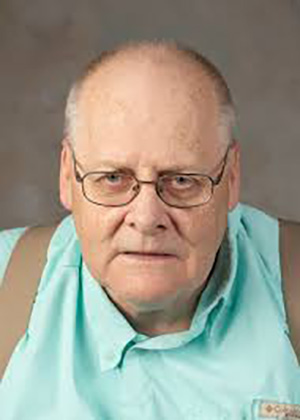What a surprise! It’s all around us.
At a 2010 gathering of a Catholic group in Washington, DC, House Speaker Nancy Pelosi, herself a Catholic, spoke of the Word of the Lord, but with a certain remove.
“My favorite word is the Word. That is everything. It says it all for us. And you know the biblical reference, the Gospel reference of the Word. Isn’t it a beautiful word when you think of it? It just covers everything. The Word.”
Recently, the nerdy lexicographers at Oxford University Press could not find a winner as “Word of the Year” for 2020. Just as Mrs. Pelosi in 2010, they stumbled around for a good way to summon up The Word but didn’t succeed. The team, trying to find one word to describe our busy, fraught year, failed because this year was “unprecedented” with a “seismic shift in language.”
“The English language, like us, had to adapt rapidly and repeatedly this year,” Oxford University Press’s report explained. “Given the phenomenal breadth of language change and development in 2020, Oxford Languages concluded that this is a year which cannot be neatly accommodated in one single word.”
Well, okay. Yet, in studying certain words this year, the Oxford English Dictionary team noted that some words that were not so prominent in normal years became ubiquitous in 2020. They included “bushfire,” “impeachment,” “acquittal,” “coronavirus,” “COVID-19,” “lockdown,” “social distancing,” and “reopening.”
The word-pickers at Merriam-Webster were not as thrown by the wide array of new or strengthened words as were the Oxford wordsmiths. They chose “pandemic” as their undisputed Word of the Year, 2020. “Pandemic” is defined as a disease outbreak that happens to a wide swath of an area, usually over a group of countries and affecting a majority of the people of each region or country affected.
“Sometimes a single word defines an era, and it’s fitting that in this exceptional — and exceptionally difficult — year, a single word came immediately to the fore as we examined the data to determine what our Word of the Year will be,” per a company statement. It is in the article “Merriam-Webster’s 2020 Word of the Year Is One You Definitely Know,” by Samantha Schnurr, in E! News.
The article continues: “What is most striking about this word is that it has remained high in our lookups ever since, staying near the top of our word list for the past ten months — even as searches for other related terms, such as ‘coronavirus’ and ‘COVID-19,’ has waned.”
Before revealing the top word of 2019 at Merriam-Webster, I am reminded of a 1930s Abbott and Costello comedy sketch called “Who’s on First?” In that sketch, confusion erupts at a baseball game when Lou Costello asks Bud Abbott who plays where. The answer is disorienting as all players have double-entendre names such as “What” at second base and “Tomorrow” for the pitcher.
In 1999, “Who’s on First?” was chosen by Time as the Best Comedy Sketch of the 20th Century. It illustrates that sometimes the names people have since childhood, or names they wish to be called later on, can be confusing. But above all, these names must be respected, not turned into insults or part of a game.
This is true with the word “they,” 2019’s word of the year for Merriam-Webster. Used singularly, “they” is a pronoun that refers to a person whose gender identity is non-binary. This gender-neutral pronoun is used instead of “he or she.” (Non-binary is a spectrum of gender identities that are outside the gender binary.)
Melissa Locker, in Time, quotes the dictionary’s statement for clarification: “English famously lacks a gender-neutral singular pronoun to correspond neatly with singular pronouns like everyone or someone, and as a consequence “they” has been used for this purpose for over 600 years.”
Oxford University Press not only had “climate emergency” as its Word of the Year in 2019, but spotlighted other climate-related words. The Guardian’s editor-in-chief Katharine Viner said: “We want to ensure that we are being scientifically precise, while also communicating clearly with readers on this very important issue. The phrase ‘climate change,’ for example, sounds rather passive and gentle when what scientists are talking about is a catastrophe for humanity.”
In 2020 “pandemic” was Word of the Year for one dictionary and nothing was chosen for another dictionary’s Word of the Year. Just like with the U.S. House Speaker in 2010, describing The (precise) Word was a challenge. Maybe we should adopt poet Robert Frost’s philosophy: “In three words I can sum up everything I’ve learned about life: It goes on.”
Greg Markley has lived in Lee County for 21 years, on and off. He has master’s degrees in education and history. He taught politics as an adjunct in Georgia and Alabama. He was U.S. Army Europe Journalist of the Year (1993) for articles from Croatia, Germany, and Macedonia.

